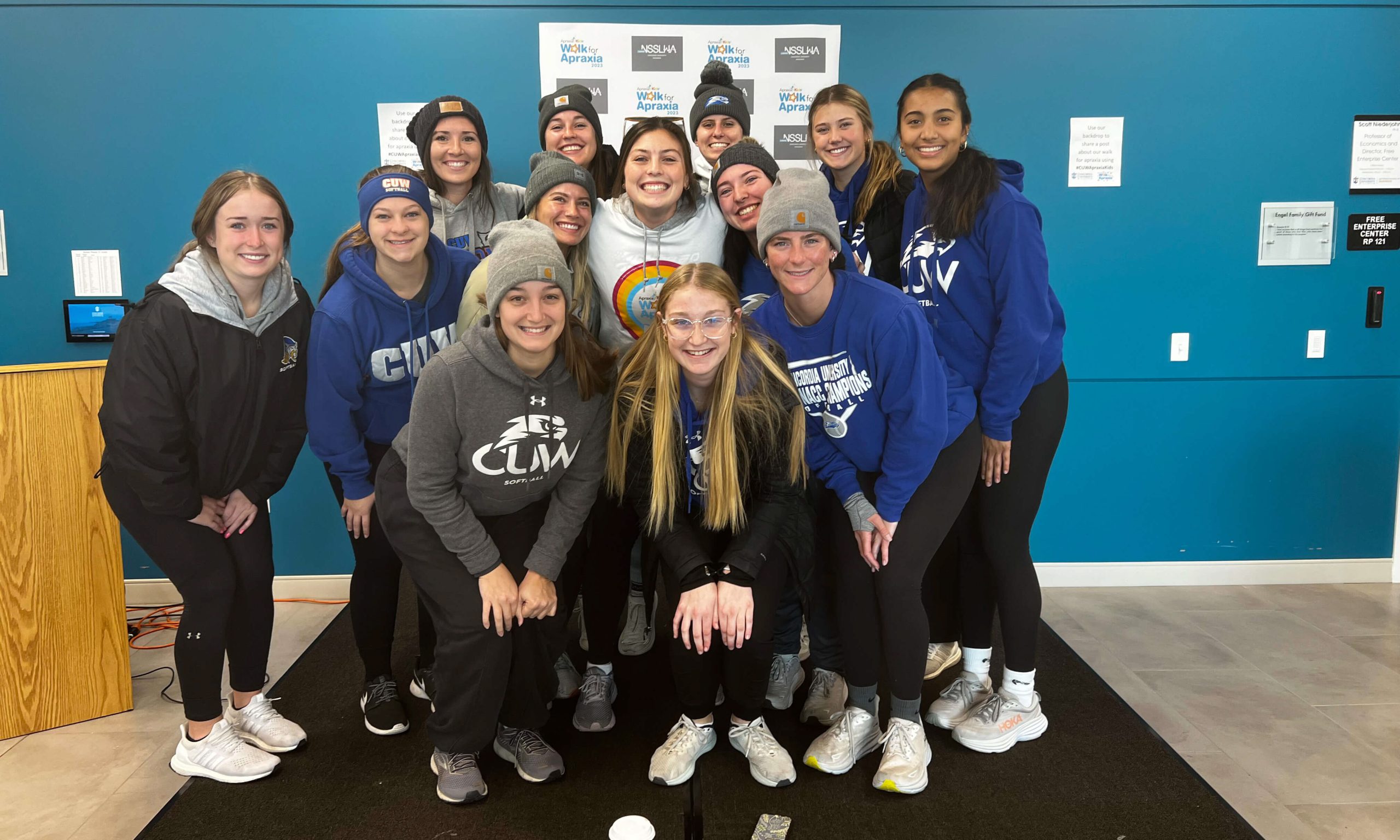
Concordia’s National Student Speech Language Hearing Association chapter was recently honored for their efforts to raise funds and awareness for childhood apraxia.
Everyone deserves a voice, and for a specific group of individuals who struggle physically to speak, Concordia’s chapter of the National Student Speech Language Hearing Association (NSSLHA) recently helped provide a proverbial one.
Last month, the CUW NSSLHA group hosted its first annual fundraiser, an on-campus walkathon to help raise awareness and funds to benefit the families of children who are diagnosed with apraxia of speech. The Concordia event was part of a larger effort spearheaded by Apraxia Kids, a national organization that supports families with children who have childhood apraxia of speech.
For their efforts, Apraxia Kids honored Concordia’s team as part of its “Champions Club.” A couple of the CUW student-volunteers took a moment to share about their experience and future career field.
Mackenzie Irwin
Hometown: Sheboygan Falls
Program of study: Master of Science in Speech-Language Pathology with a certificate in Interprofessional Education
Madison Stumpf
Hometown: Dodgeville
Program of study: Master of Science in Speech-Language Pathology with a certificate in Interprofessional Education

What is Apraxia of speech and how is it relevant to the speech-language pathology field?
Mackenzie: Apraxia of speech is a motor speech disorder in which individuals have challenges in programming the movements for speech. This negatively impacts the communication abilities of the individual. Speech-language pathologists work with children and adults with communication deficits, which includes those with an apraxia of speech diagnosis. Individuals with communication differences can face many unique challenges. By raising awareness, it might equip the public to better deal with situations that they could encounter in everyday life.
Why did you want to support this particular cause?
Madison: Apraxia of speech is something that is not often talked about and can be difficult to recognize or diagnose. It shows up in children or adults, and SLPs in a variety of work environments could encounter it. Bringing awareness to apraxia of speech will benefit speech-language pathologists who work with these clients. And it will also benefit the clients through the development of assessment and treatment approaches.
Mackenzie: We were honored to contribute funds to support efforts such as research and help provide resources for children and families who are impacted by the diagnosis. It’s important as emerging professionals to engage in advocacy for our current and future clients and their families.
What motivates you to become a SLP?
Mackenzie: I have wanted to be an SLP since high school. This was when I first observed an SLP that I knew on a personal level. It was exciting to watch her provide services to a young child and celebrate the successes her client had throughout the session. It was something that stuck with me and motivated me to continue my journey to becoming an SLP.
Madison: I love to watch kids learn and develop in all aspects, but specifically communication. I have always had a strong interest in working with individuals with diverse abilities, and as an SLP I am able to help individuals use their strengths to facilitate functional communication.
Why did you choose to study at Concordia?
Mackenzie: I chose to continue my education at CUW because I liked the idea of having a small program and I enjoyed the community. It was important to me to know that I had a community to support me throughout my academic journey. Since I completed my undergraduate coursework at CUW, I already felt like I had interpersonal relationships built with the faculty. I have loved my time at CUW both as an undergraduate and graduate student!
Madison: I chose to continue my education at CUW because I was excited to be part of a smaller community that would allow me to know all of my professors and peers. Graduate school can be difficult at times and having a small community behind me was important. I am very happy with my decision to attend CUW and have built many interprofessional relationships and gained great experiences.
Want in?
In order to obtain a master’s degree in speech-language pathology, a bachelor’s degree in communication sciences and disorders (or equivalent from another school) is required. Concordia offers both the undergraduate and graduate degree programs needed to prepare learners to graduate as competent practitioners. Learn more about our programs by clicking below.